Walmart heiress Alice Walton, Hillary Rodham Clinton among Arkansas most influential Women of the Century
When Anna Beth Gorman thinks about Arkansas women and what their life has been like since Congress granted women the right to vote, she wants people to understand that while it’s easy to assume a Southern, conservative state would encourage its women to stay out of arenas typically dominated by men, that’s not the case in the Natural State.
“That’s the story I want people to know about Arkansas,” says Gorman, the board chair of the Arkansas Women's Hall of Fame. “Our women have not been passive.”
She’s right. Arkansas is the home of women who have left their mark locally and nationally. After all, the first woman U.S. senator was from Arkansas. Another built a world-class art museum. And a group of powerful, brave women played a crucial role in integrating Arkansas public schools.
This August, America will celebrate the 100th anniversary of the 19th Amendment, which legally allowed women to vote in the U.S. To commemorate this, the USA TODAY Network is naming 10 American women from all 50 states, plus the District of Columbia, as Women of the Century. These women have a documented track record of outstanding achievement in fields like arts and literature, business, civil rights, education, entertainment, law, media, nonprofits and philanthropy, politics, science and medicine, and sports.
Are you registered to vote? Take the first step to making sure your vote counts.
Choosing just 10 women wasn’t easy. Some Arkansas standouts that didn’t make our list include Johnelle Hunt, CEO of J.B. Hunt Transport Services, one of the biggest transportation companies in the U.S.; Raye Jean Jordan Montague, the first female program manager of ships in the Navy who also designed the first computer program that could design a ship; former Arkansas first lady Betty Bumpers, who advocated for child immunization; sisters Dr. Betty Lowe and Dr. Mary Lowe Good, who helped build Arkansas Children’s Hospital into a nationally renown institution where children from all over the U.S. travel for high-level, lifesaving procedures; and Dymple B. Johnson, the first woman to ever vote in the South.
All were worthy of consideration, but in the end, the women below are the Women of Century from Arkansas.
Who is your Woman of the Century? Did we miss a woman you think should be on our list? We’d like to hear from you.
Hillary Rodham Clinton
Politician, women’s rights and children’s rights advocate
(1947- )
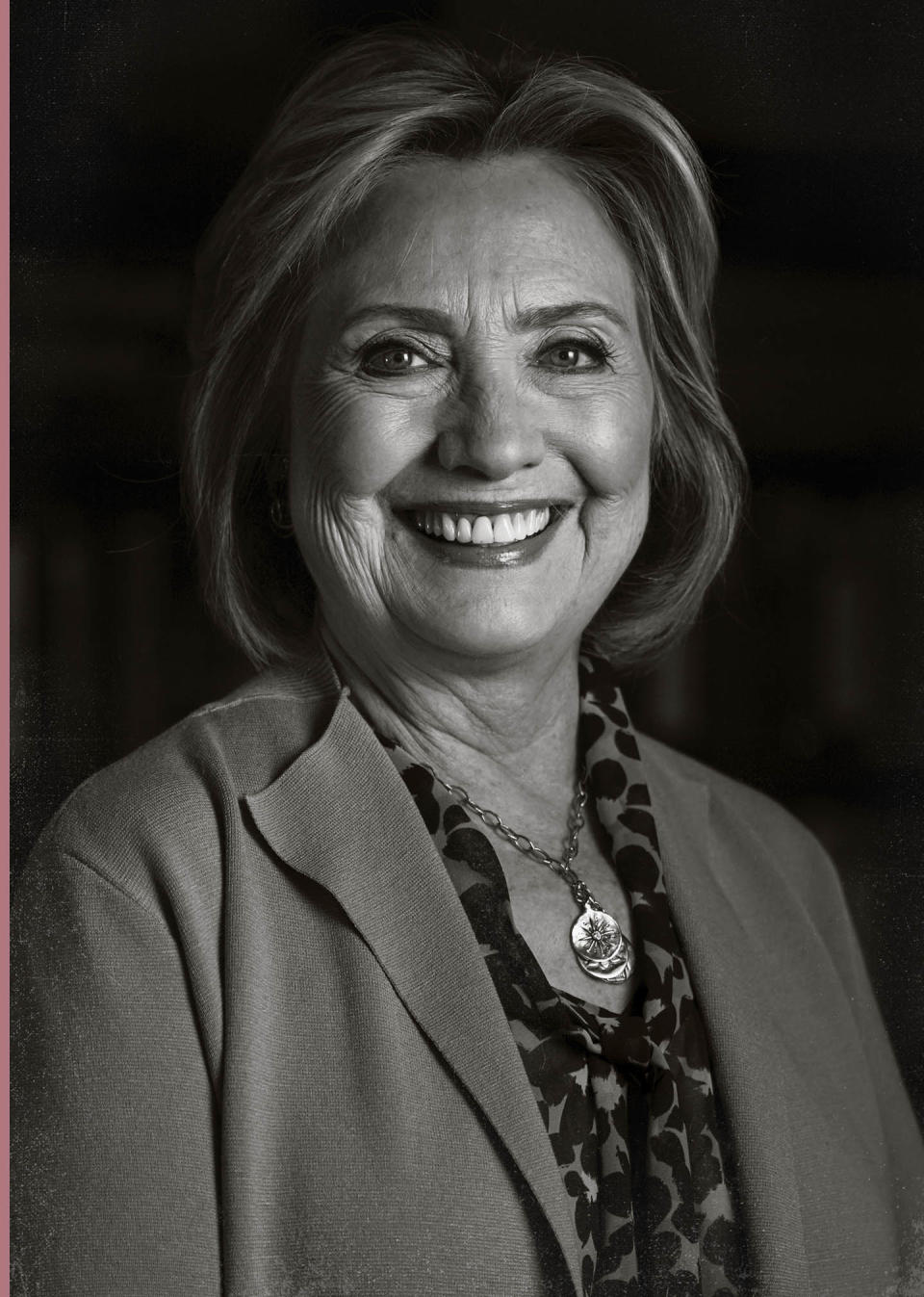
Though she was born in Illinois and represented New York as a U.S. senator, Hillary Rodham Clinton built her national platform in Arkansas, where she lived for almost 20 years after marrying Bill Clinton.
Clinton launched her legal career in Arkansas, and in 1974 became one of only two female faculty members at the University of Arkansas’ law school. She was named one of the 100 most powerful lawyers in America by The National Law Journal in both 1988 and 1991. A longtime children’s rights advocate, in 1977 she co-founded Arkansas Advocates for Children and Families, one of the state’s first child advocacy groups. As Arkansas’ first lady, she led statewide school reform and pushed for Medicaid expansion. She also helped create the state’s first neonatal intensive care unit. In Fayetteville, she co-founded the city’s first rape crisis center.
Clinton has continued her advocacy for women and children as America’s first lady (1993-2001), a U.S. senator from New York (2001-09), secretary of State (2009-13) and as the 2016 Democratic nominee for president. But her work in Arkansas was critical in building her career and in her rise to national prominence.
Hattie Caraway
America’s first elected female U.S. senator
(1878-1950)

The first woman ever elected to the United States Senate, Hattie Caraway was born in Tennessee and moved to Arkansas after marrying Thaddeus Caraway in the early 1900s. In 1931, after Thaddeus Caraway died while serving as U.S. senator, Hattie Caraway was appointed by the Arkansas governor to take his place. In January 1932, she won a special election to serve the remaining months of his term. In May of that year, she surprised locals by deciding to run again for a full term, telling reporters, “The time has passed when a woman should be placed in a position and kept there only while someone else is being groomed for the job.”
She won in 1932 and was re-elected in 1938 before losing a bid for a third term in 1944. In 14 years as a senator, Caraway was known as a staunch supporter of President Franklin Roosevelt and The New Deal. Her tenure was highlighted by “firsts” – first woman to chair a Senate committee, first woman to preside over the Senate and first woman to run a Senate hearing, among other accomplishments.
Women of the Little Rock Nine
Minnijean Brown-Trickey (1941- ), Elizabeth Eckford (1941- ), Thelma Mothershed-Wair (1940- ),
Melba Pattillo (1941- ), Gloria Ray Karlmark (1942- ), Carlotta Walls (1942- )
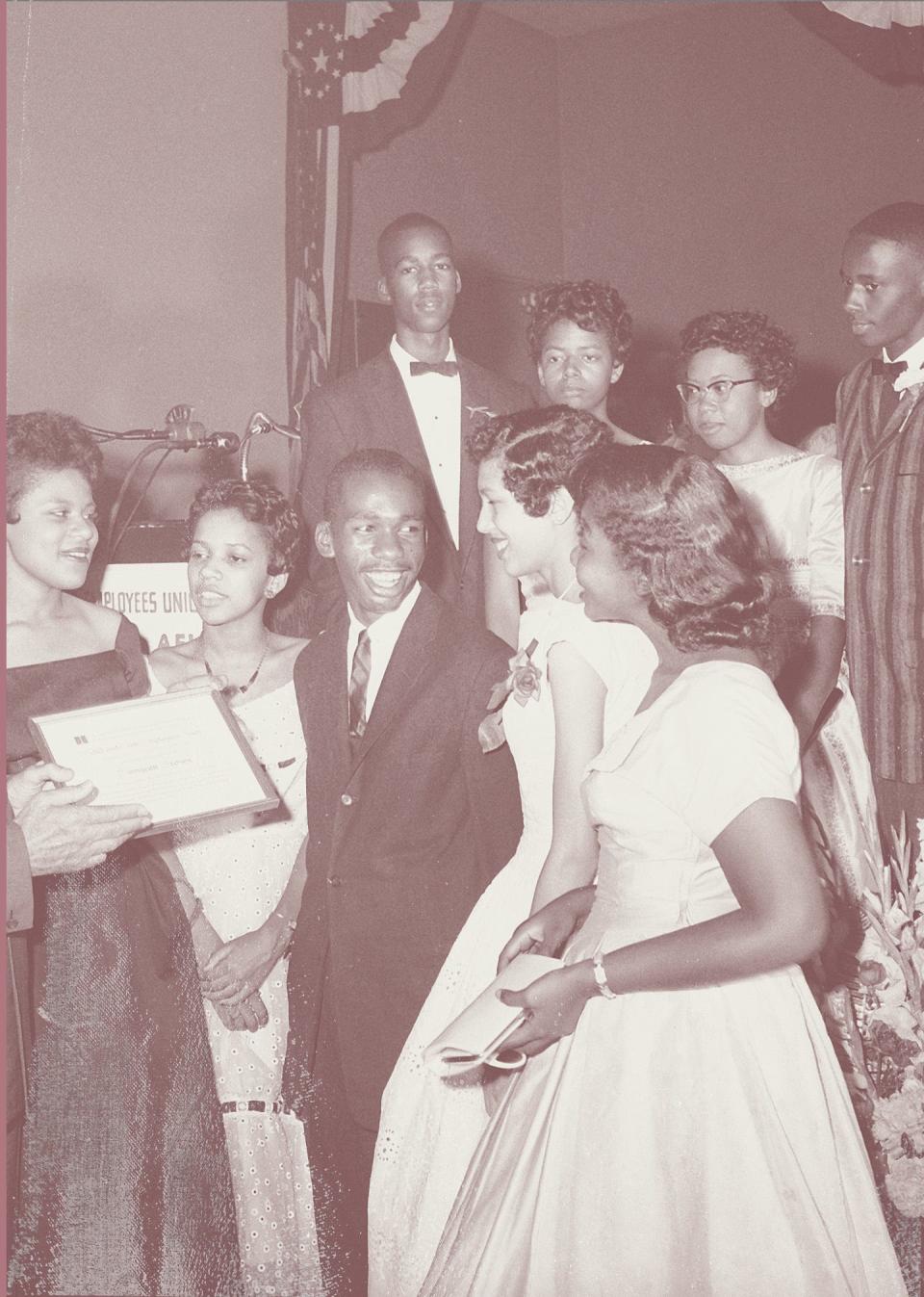
Six women were part of the Little Rock Nine, a group of nine Black students recruited to integrate Little Rock Central High in 1957 after the Supreme Court ruled in 1954 in Brown v. Board of Education that segregation in America’s public schools was unconstitutional.
After the Little Rock Nine enrolled at the high school, then-Gov. Orval Faubus called in the national guard and prevented the students from entering. But three weeks later, President Dwight D. Eisenhower intervened, and the students began school on Sept. 25, 1957. Numerous media reports detailed the harassment – and occasional violence – experienced by the Little Rock Nine for most of the school year. Melba Pattillo’s memoir “Warriors Don’t Cry” draws from the diaries she kept during the integration.
In 1998, the Little Rock Nine were awarded the Congressional Gold Medal “in recognition of the selfless heroism such individuals exhibited and the pain they suffered in the cause of civil rights.”
Daisy Lee Gatson Bates
Civil rights activist
(1914-1999)

A fierce civil rights advocate, Daisy Bates became president of the Arkansas NAACP chapter in 1952, at age 38. Shortly after, she played a pivotal role in the recruitment and mentorship of the Little Rock Nine, persuading nine Black students to become the first to integrate Little Rock Central High in 1957. Before one of America’s biggest integration battles, Bates and her husband, Lucious Christopher Bates, started a weekly African American newspaper, the Arkansas State Press, which focused mostly on civil rights advocacy.
Bates later worked for the Democratic National Committee and served in President Lyndon Johnson’s administration, working on anti-poverty programs. Her 1988 memoir, “The Long Shadow of Little Rock,” won an American Book Award.
Adolphine Fletcher Terry
Civil rights activist
(1882-1976)

A Little Rock native, Adolphine Terry is most remembered for her role in the Women’s Emergency Committee, a group of white women who organized in response to Gov. Orval Faubus’ attempts to prevent school integration in Arkansas.
After the Brown v. Board of Education 1954 ruling that required schools to integrate, the Little Rock Nine attended Little Rock Central High for the 1957-58 school year. Then, in the summer of ’58, Faubus ordered all public schools to close in an attempt to prevent further integration throughout the state.
Terry wouldn’t have it. With two of her friends, Terry formed the Women’s Emergency Committee to fight Faubus’ segregation stance and campaigned to remove three Little Rock school board members who also supported segregation. Their defeat was a significant blow to Faubus. In 1959, led by Terry, the Women’s Emergency Committee and other activist groups, public schools reopened. Terry was integral in the formation of a free library program throughout the state and championed other causes including women’s suffrage, equal housing opportunities and education.
Sister Rosetta Tharpe
Gospel singer
(1915-1973)
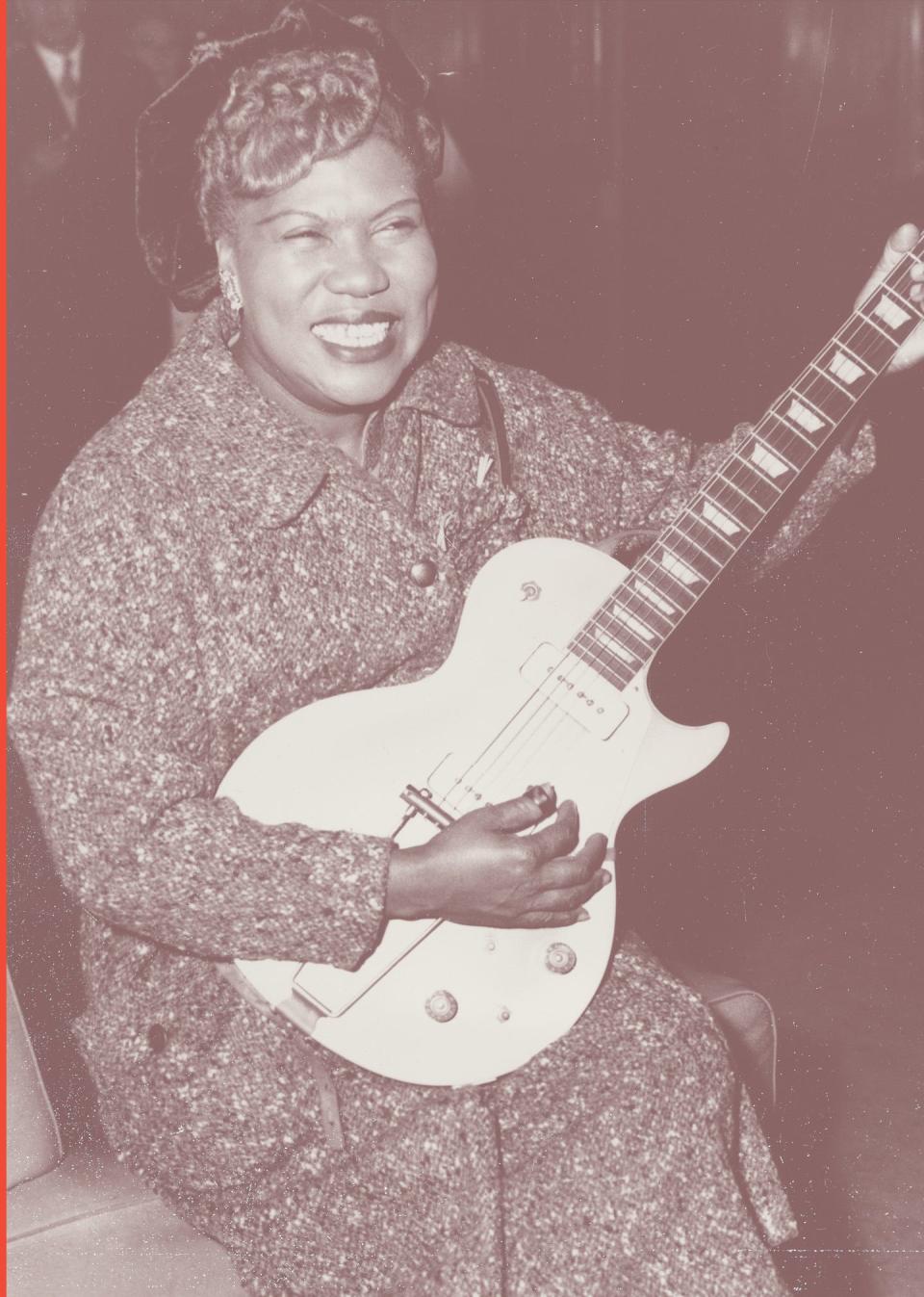
One of gospel music’s first true superstars, Sister Rosetta Tharpe was so popular in the 1930s and 40s that she crossed over into mainstream music, becoming the first gospel singer to land a deal with a major record label. While her vocal talent was undeniable, Tharpe, sometimes referred to as “the godmother of rock and roll," was best known for playing guitar. She excelled at individual tones, melodies and riffs – as opposed to just strumming chords – and her music had a distinct blues and jazz vibe. In her era, it was uncommon to see Black women playing guitar, which made her that much more of a showstopper.
Numerous musicians have spoken of her influence on their lives and work, and some have recorded her songs, including Johnny Cash, Bob Dylan and Elvis Presley. A musical based on her life, “Shout, Sister, Shout!” premiered in 2017, and in 2018, she was posthumously inducted into the Rock & Roll Hall of Fame.
Gisel Ruiz
One of the highest-ranking Latinas in Walmart corporate history
(1970- )

Before her early retirement last year at age 48, Gisel Ruiz was one of the highest-ranking Latinas in Walmart corporate history when she held the position of executive vice president and chief operating officer at Sam’s Club. Over her career with Walmart, the world's largest retailer, she held a variety of leadership positions, including U.S. chief operating officer and executive vice president of people for Walmart International.
A graduate of Santa Clara University, Ruiz started at Walmart right out of college as a management trainee, eventually making the jump to human resources. Passionate about teaching and mentorship, she has been recognized by numerous organizations as one of the most powerful Latinas in business.
Her honors include being named one of the Top 25 Powerful Minority Women in Business by the Minority Enterprise Council in 2008, winning the 2008 Walmart Leadership Award and being chosen as one of the Top 25 business women by Hispanic Business Magazine in 2009. Another publication, Latina Style, named her its Latina executive of the year four times, in 2010, ’12, ’13 and ’14; she has three times been named by FORTUNE as one of the 50 most powerful women in business. She is currently on the Board of Trustees at Santa Clara University and is an advisory board member at its School of Business.
Alice Louise Walton
Philanthropist
(1949- )
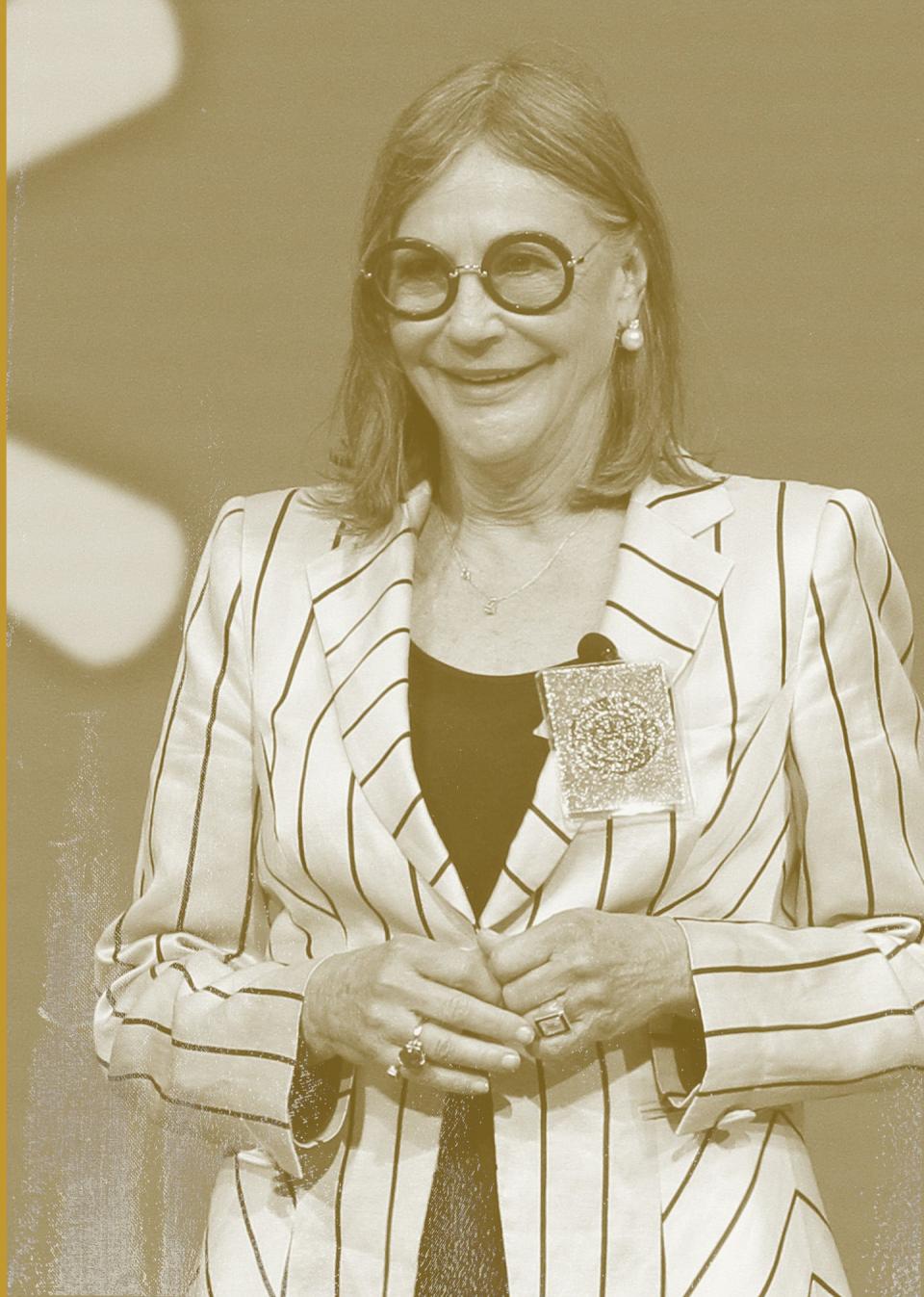
The heiress to the Walmart fortune (she is the daughter of Walmart founder Sam Walton), Alice Louise Walton founded Crystal Bridges Museum of American Art, a sprawling 201,000-square-foot dedicated to American art.
The building is twice the size of the Whitney Museum in New York City and is lauded both for its collection and for bringing fine art to middle America, educating visitors and making Bentonville, Arkansas, a destination for art junkies. Prior to the museum’s opening, Walton told The New York Times: “I never would have thought of collecting anything but American, truly. This is the heartland of the country. It’s what should be here.”
Walton has been an art collector for most her life, though she first worked at an investment company she founded and ran. She’s chairwoman of the museum’s board and in 2013 was awarded the Smithsonian Institution’s Archives of American Art Medal, given annually to leaders in American art.
Louise McPhetridge Thaden
First woman to win a national air race
(1905-1979)
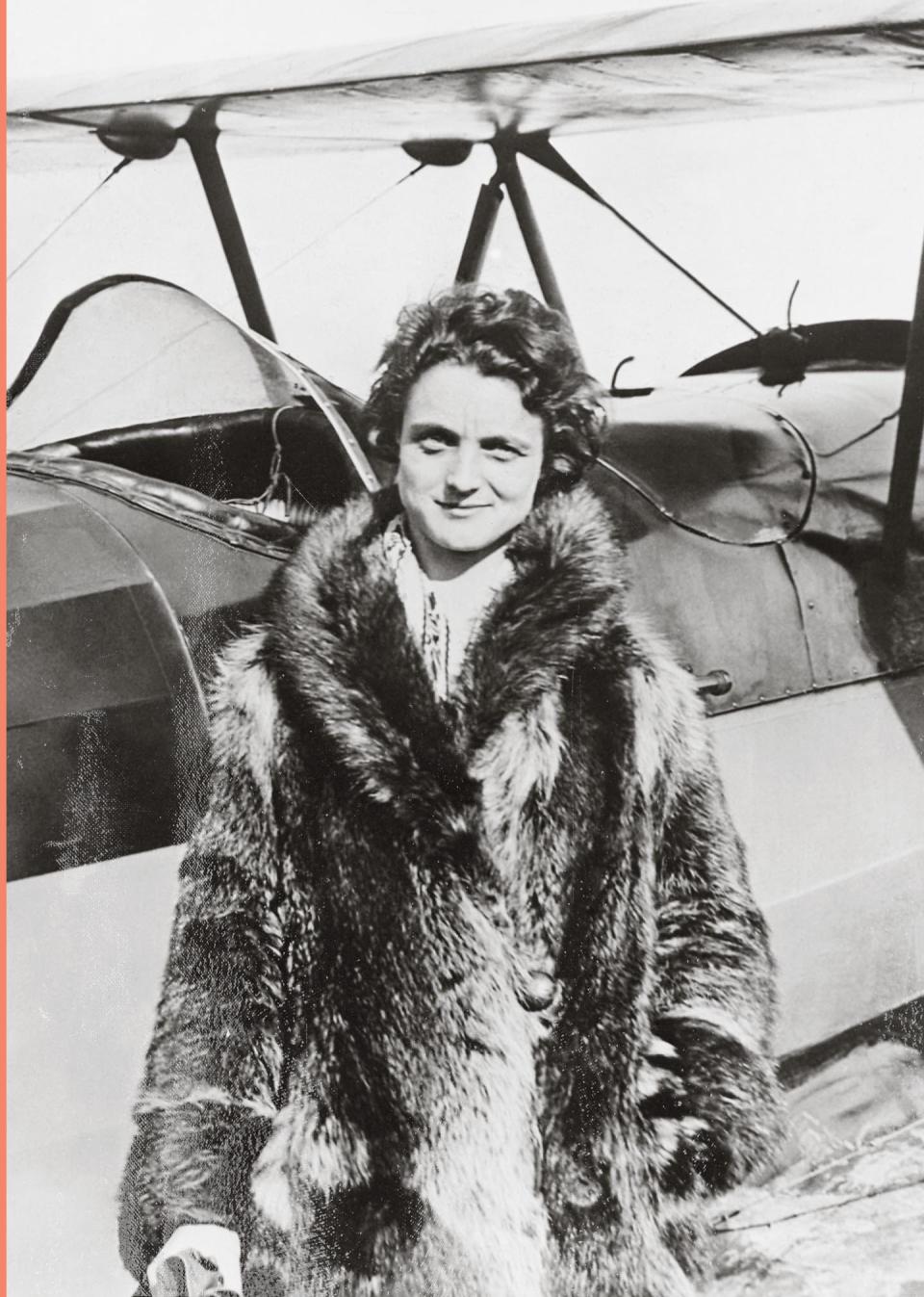
Before Amelia Earhart, Louise McPhetridge Thaden blazed trails in the sky, becoming in 1936 the first woman to win the Bendix Trophy, awarded to the winner of a transcontinental race that ran from 1931 to 1962. Her co-pilot was another woman, Blanche Noyes.
A Bentonville native, Thaden would eventually become the first – and only – pilot to simultaneously hold records for women’s altitude (20,260 feet), solo endurance (22 hours, 23 minutes and 28 seconds) and speed (156 mph).
In 1929, Thaden co-founded, along with Earhart and Ruth Nicoles, the Ninety-Nines, an organization dedicated to mentoring and inspiring female pilots. She is considered one of the greatest aviators of her time, and in 1999 she was inducted into the National Aviation Hall of Fame. In 2017, the Thaden School, a private institution that serves grades 6-12, opened in Bentonville; its motto is, “Are you ready to fly?”
Joycelyn Elders
First African-American U.S. surgeon general
(1933- )

The 15th surgeon general of the United States – and the first African American to hold the position, Joycelyn Elders, did not let a childhood of poverty hold her back. Despite not visiting a doctor until she was 16, Elders, a native of Schaal, went on to become the first person in Arkansas board-certified in pediatric endocrinology. She served three years in the U.S. Army and was trained as a physical therapist.
Appointed by President Bill Clinton in 1993, Elders was just the second woman to serve as U.S. surgeon general. But her progressive views, especially around sexuality and drug legalization, proved to be too controversial for the country, and Clinton asked for her resignation in late 1994.
In March of this year, Elders was named one of Time magazine’s most influential women of the past century.
More coverage
Women of the Century: They didn’t succeed despite adversity, but often because of it
50 states: Learn about notable women from every state
Who is your Woman of the Century?: Let us know
Recognizing women past and present: See all of our coverage
Special thanks to Anna Beth Gorman of the Arkansas Women's Hall of Fame and Arkansas historian Ben Boulden.
Sources used in the Women of the Century list project include newspaper articles, state archives, historical websites, encyclopedias and other resources.
This article originally appeared on USA TODAY: Women of the Century Arkansas: Clinton, former surgeon general on list

